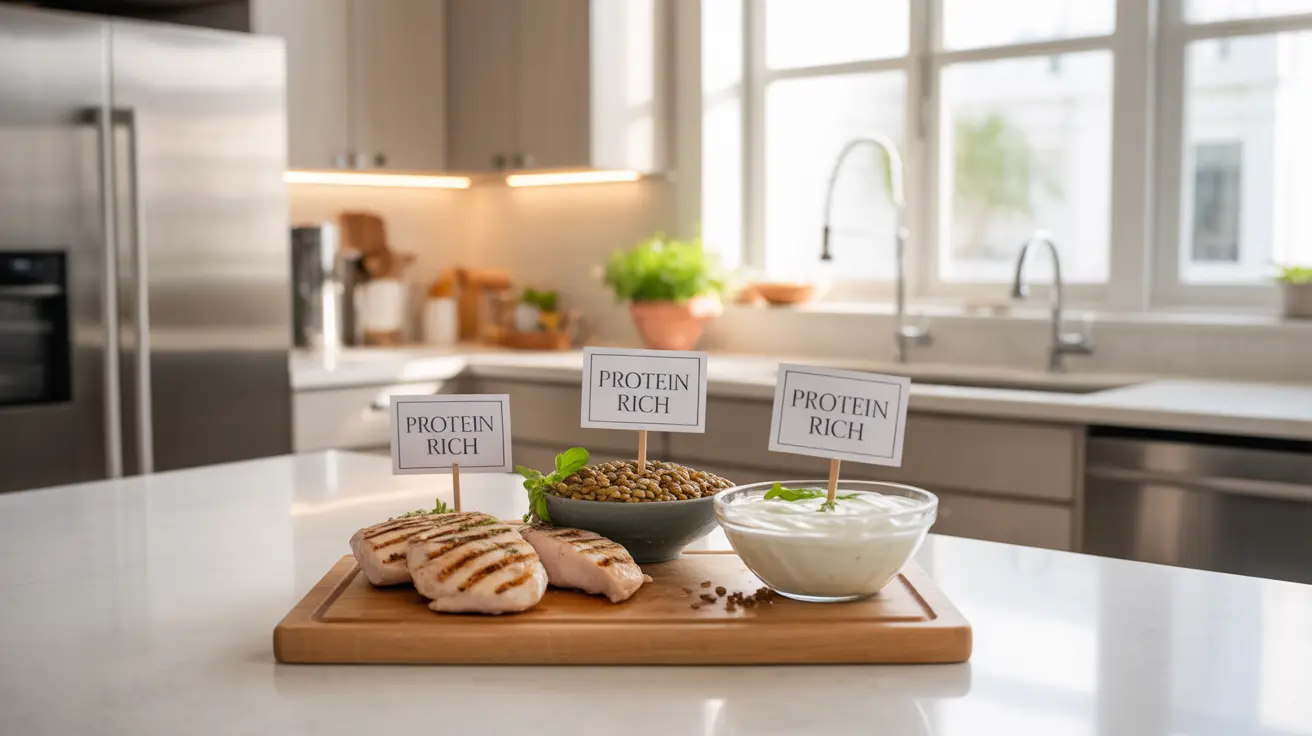If you're looking to shed pounds while maintaining muscle mass, a high-protein diet for weight loss might be your key to success. This comprehensive approach to eating not only supports your weight loss goals but also helps preserve lean body mass and keeps hunger at bay throughout the day.
In this guide, we'll explore how protein-rich foods can transform your weight loss journey, what foods to include, potential risks to consider, and how to customize this approach for different dietary preferences.
How Protein Supports Weight Loss
A high-protein diet works through multiple mechanisms to enhance weight loss. First, protein has a higher thermic effect compared to carbohydrates and fats, meaning your body burns more calories digesting it. Additionally, protein helps maintain muscle mass during weight loss, which keeps your metabolism running efficiently.
The satiety factor of protein is particularly noteworthy. When you consume protein-rich foods, they trigger hormones that signal fullness to your brain, helping you naturally eat less throughout the day without feeling deprived.
Optimal Protein Sources for Weight Loss
Animal-Based Proteins
- Lean chicken breast (31g protein per 100g)
- Turkey breast (29g protein per 100g)
- Fish (cod, salmon, tuna: 20-25g protein per 100g)
- Egg whites (11g protein per 100g)
- Greek yogurt (10g protein per 100g)
Plant-Based Proteins
- Lentils (9g protein per 100g)
- Chickpeas (15g protein per 100g)
- Quinoa (14g protein per 100g)
- Tofu (8g protein per 100g)
- Hemp seeds (31g protein per 100g)
Creating a Balanced High-Protein Meal Plan
To successfully implement a high-protein diet for weight loss, focus on spreading your protein intake throughout the day. Aim to include a protein source at every meal and snack. A sample day might include:
- Breakfast: Greek yogurt parfait with berries and nuts
- Mid-morning snack: Hard-boiled eggs
- Lunch: Grilled chicken salad with quinoa
- Afternoon snack: Cottage cheese with fruit
- Dinner: Baked fish with roasted vegetables
Understanding Protein Requirements
For weight loss, aim for 1.6-2.2 grams of protein per kilogram of body weight daily. This amount helps preserve muscle mass while creating a caloric deficit. However, individual needs may vary based on factors like activity level, age, and overall health status.
Safety Considerations
While a high-protein diet can be safe for most healthy individuals, there are some important considerations. People with kidney issues should consult their healthcare provider before increasing protein intake. It's also crucial to maintain adequate hydration and ensure you're still getting enough fiber and other nutrients.
Frequently Asked Questions
How can a high-protein diet help with weight loss and keep you feeling full longer?
A high-protein diet promotes weight loss by increasing satiety hormones, boosting metabolism through the thermic effect of food, and preserving muscle mass. Protein takes longer to digest than carbohydrates, helping you feel full for extended periods.
What are some healthy foods and easy meal ideas for a high-protein diet to lose weight?
Focus on lean meats, fish, eggs, dairy, legumes, and plant-based proteins. Easy meal ideas include overnight protein oats, turkey and avocado wrap, Greek yogurt parfaits, and simple stir-fries with tofu or lean meat.
Are there any risks or side effects of eating a high-protein diet for weight loss, especially for my kidneys or bones?
For healthy individuals, a high-protein diet is generally safe. However, those with existing kidney problems should consult their doctor. Contrary to some concerns, research shows that high-protein diets don't harm bone health when part of a balanced diet.
How much protein should I eat each day for effective weight loss, and can I follow a high-protein diet if I'm vegetarian or vegan?
Aim for 1.6-2.2g of protein per kilogram of body weight daily. Vegetarians and vegans can successfully follow a high-protein diet by incorporating legumes, tofu, tempeh, seitan, quinoa, and plant-based protein powders.
Does a high-protein diet really help you burn more calories and keep off the weight you lose?
Yes, protein has a higher thermic effect, meaning your body burns more calories digesting it compared to other nutrients. Additionally, maintaining muscle mass through adequate protein intake helps sustain a higher metabolic rate, supporting long-term weight maintenance.




